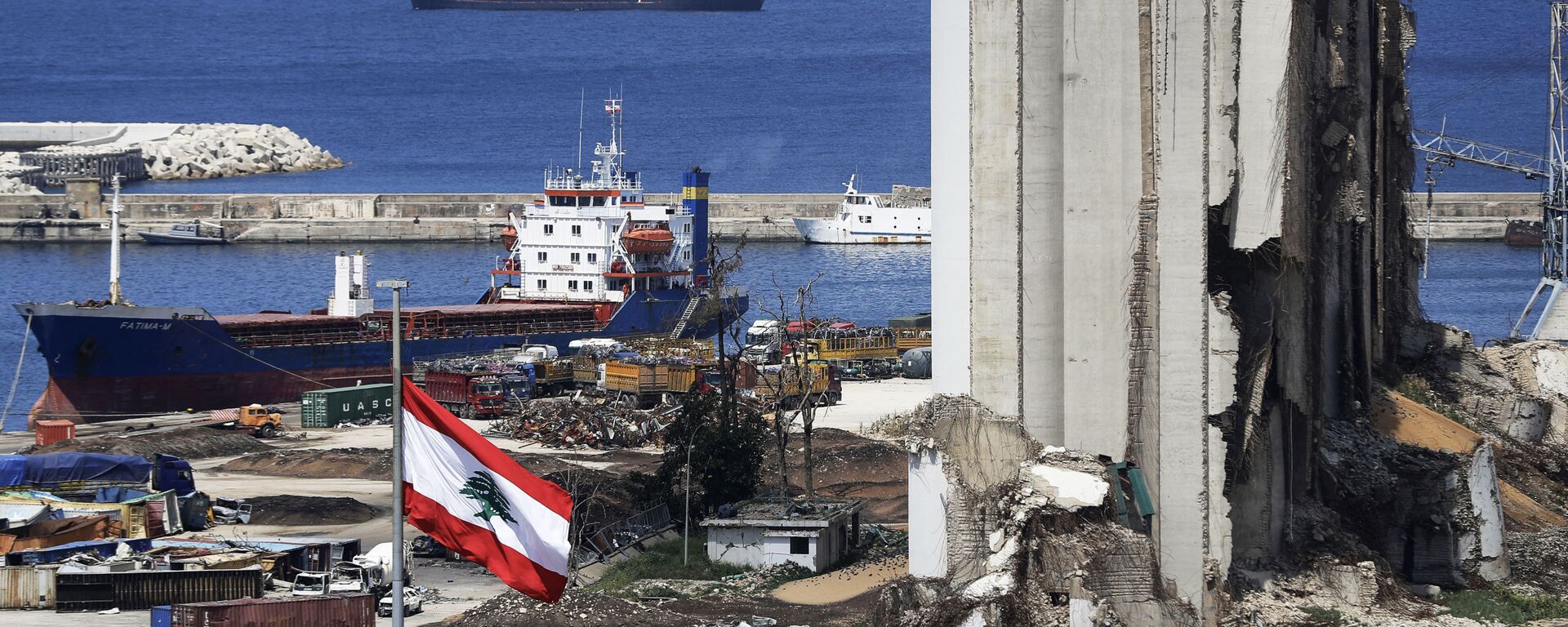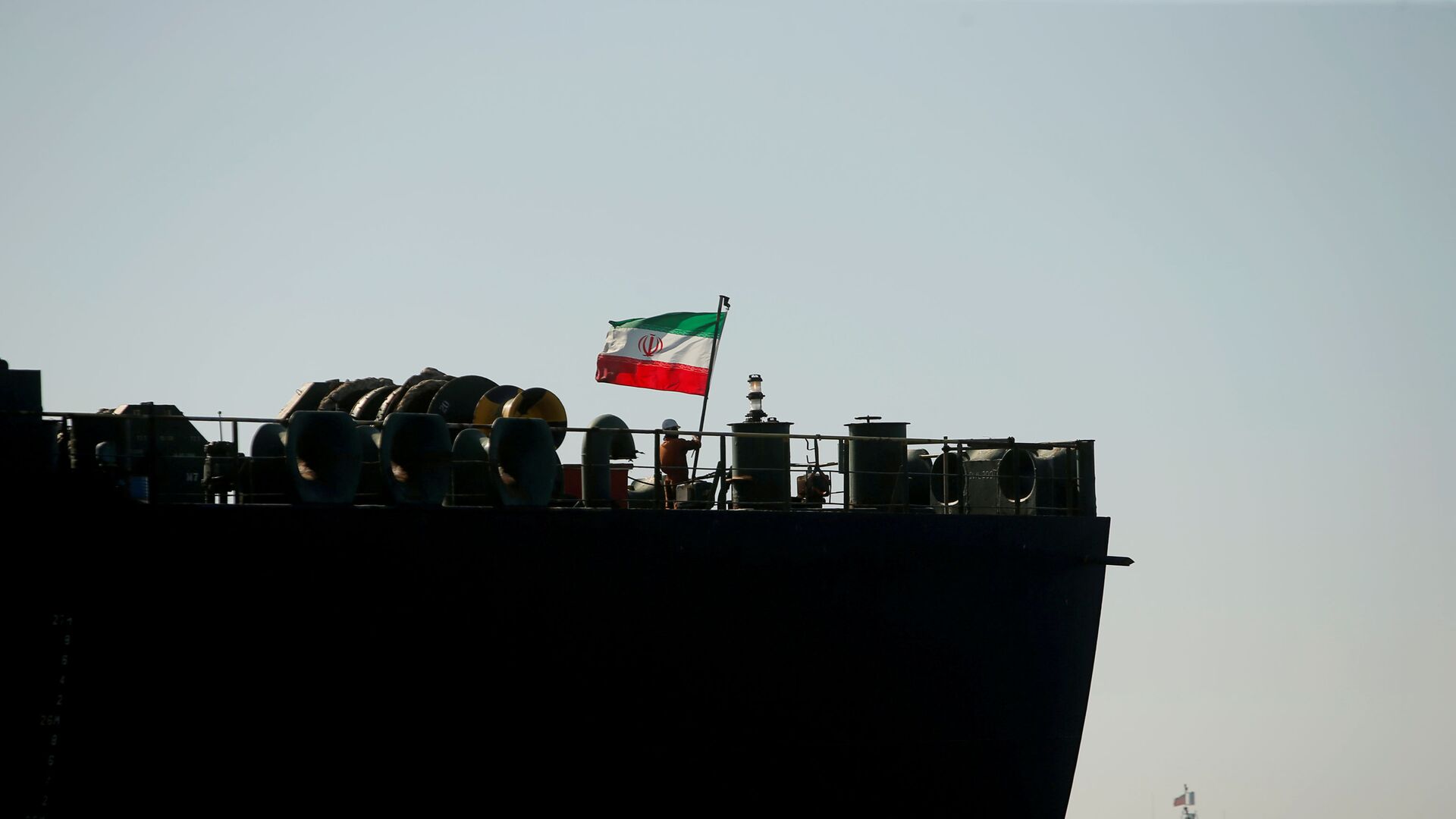https://sputnikglobe.com/20210911/lebanons-hezbollah-says-iranian-fuel-shipments-proves-ability-to-confront-us-siege-1088988799.html
Lebanon's Hezbollah Says Iranian Fuel Shipments Proves Ability to 'Confront US Siege'
Lebanon's Hezbollah Says Iranian Fuel Shipments Proves Ability to 'Confront US Siege'
Sputnik International
The first vessel containing Iranian fuel bound for Lebanon reportedly entered Syrian waters last week, with sources telling news agencies that the fuel would... 11.09.2021, Sputnik International
2021-09-11T15:53+0000
2021-09-11T15:53+0000
2021-09-11T16:03+0000
hezbollah
america
iran
lebanon
economic crisis
crisis
fuel
https://cdn1.img.sputnikglobe.com/img/107696/90/1076969092_0:0:3072:1728_1920x0_80_0_0_4f91d768537dbea4dc382bb5619133c8.jpg
Iran's shipment of fuel to Lebanon is a major victory against the United States and its "schemes", Hezbollah deputy chief Naim Qassem has suggested.The official suggested that the "transformations" taking place in Lebanon run counter to the schemes envisioned by the US and Israel – Hezbollah's sworn enemy, and stressed that the militant group would continue to face the American "siege" of Lebanon, just as it has faced the Israeli occupation of Lebanon in years past.Lebanon is facing severe fuel shortages that have affected both the private and public sector, with strategic areas, including hospitals and transportation, crippled as a result of the scarcity.Hezbollah plays a major role in Lebanon's sectarian-based politics. Last month, the Shia movement's leader, Hassan Nasrallah, announced that the group had secured an agreement with Iran to deliver at least three shipments of fuel to Lebanon. The deliveries are expected to take place in spite of US pressure on third countries not to accept energy from the Islamic Republic under penalty of sanctions.Last week, Iranian Foreign Minister Hossein Amir-Abdollahian told the Lebanese Free Patriotic Movement leader that Tehran was prepared to sell additional fuel to the Lebanese government or individual Lebanese businessmen if necessary. The FPM is a major Christian political party founded by President Michel Aoun, and has 18 seats in Lebanon's 128-seat parliament.President Aoun announced a compromise agreement with the country's political forces on the creation of a new government on Friday, with foreign business media expressing hope that the new prime minister, Sunni businessman Najib Mikati, would help quell the crisis and bring the country back into the fold of the International Monetary Fund and the World Bank. The western-dominated institutions have refused to provide aid to Lebanon in the absence of liberal economic reforms and anti-corruption measures. Mikati has been endorsed by most of Lebanon's political forces, including Hezbollah and Amal, another major Shia party, as well as Sunni forces.Lebanon's fuel shortages are just one component of a broader economic, financial, and banking crisis facing the country in recent years. The calamity began in mid-2019 as a currency and debt crisis, and have since been exacerbated by the coronavirus pandemic and the associated drop in economic activity, as well as last year's massive ammonium nitrate blast in the port of Beirut. Earlier this year, the World Bank warned the economic depression facing Lebanon today is shaping up to be among the most serious anywhere in the world since the mid-1800s, and that only a reform of its "bankrupt economic system, which benefited a few for so long" could save the country from further degradation and social conflict, or even civil war.
https://sputnikglobe.com/20210903/iran-confirms-readiness-to-sell-more-fuel-to-lebanon-if-necessary-following-watershed-deal-1083791828.html
iran
lebanon
Sputnik International
feedback@sputniknews.com
+74956456601
MIA „Rosiya Segodnya“
2021
News
en_EN
Sputnik International
feedback@sputniknews.com
+74956456601
MIA „Rosiya Segodnya“
Sputnik International
feedback@sputniknews.com
+74956456601
MIA „Rosiya Segodnya“
hezbollah, america, iran, lebanon, economic crisis, crisis, fuel
hezbollah, america, iran, lebanon, economic crisis, crisis, fuel
Lebanon's Hezbollah Says Iranian Fuel Shipments Proves Ability to 'Confront US Siege'
15:53 GMT 11.09.2021 (Updated: 16:03 GMT 11.09.2021) The first vessel containing Iranian fuel bound for Lebanon reportedly entered Syrian waters last week, with sources telling news agencies that the fuel would be delivered to Syria's northern neighbour via tanker trucks. At least two additional Iranian tankers are expected to delivery energy supplies to the crisis-hit country in the coming months.
Iran's shipment of fuel to Lebanon is a major victory against the United States and its "schemes", Hezbollah deputy chief Naim Qassem has suggested.
"The diesel-laden ships are a political, social, and moral achievement in the face of US oppression and its crimes against humanity", Qassem said, speaking at a forum in Lebanon on Friday.
The official suggested that the "transformations" taking place in Lebanon run counter to the schemes envisioned by the US and Israel – Hezbollah's sworn enemy, and stressed that the militant group would continue to face the American "siege" of Lebanon, just as it has faced the Israeli occupation of Lebanon in years past.
Qassem called on Lebanon's Arab neighbours to demonstrate cooperation and solidarity with Beirut, noting that the country would welcome any unconditional support offered to the nation.
Lebanon is facing severe fuel shortages that have affected both the private and public sector, with strategic areas, including hospitals and transportation, crippled as a result of the scarcity.
Hezbollah plays a major role in Lebanon's sectarian-based politics. Last month, the Shia movement's leader, Hassan Nasrallah,
announced that the group had secured an agreement with Iran to deliver at least three shipments of fuel to Lebanon. The deliveries are expected to take place in spite of US pressure on third countries not to accept energy from the Islamic Republic under penalty of sanctions.
Last week, Iranian Foreign Minister Hossein Amir-Abdollahian told the Lebanese Free Patriotic Movement leader that Tehran was prepared to sell additional fuel to the Lebanese government or individual Lebanese businessmen if necessary. The FPM is a major Christian political party founded by President Michel Aoun, and has 18 seats in Lebanon's 128-seat parliament.

3 September 2021, 19:09 GMT
President Aoun announced a compromise agreement with the country's political forces on the creation of a new government on Friday, with foreign business media
expressing hope that the new prime minister, Sunni businessman Najib Mikati, would help quell the crisis and bring the country back into the fold of the International Monetary Fund and the World Bank. The western-dominated institutions have refused to provide aid to Lebanon in the absence of liberal economic reforms and anti-corruption measures. Mikati has been endorsed by most of Lebanon's political forces, including Hezbollah and Amal, another major Shia party, as well as Sunni forces.
Lebanon's fuel shortages are just one component of a broader economic, financial, and banking crisis facing the country in recent years. The calamity began in mid-2019 as a currency and debt crisis, and have since been exacerbated by the coronavirus pandemic and the associated drop in economic activity, as well as last year's massive ammonium nitrate blast in the port of Beirut. Earlier this year, the World Bank
warned the economic depression facing Lebanon today is shaping up to be among the most serious anywhere in the world since the mid-1800s, and that only a reform of its "bankrupt economic system, which benefited a few for so long" could save the country from further degradation and social conflict, or even civil war.




